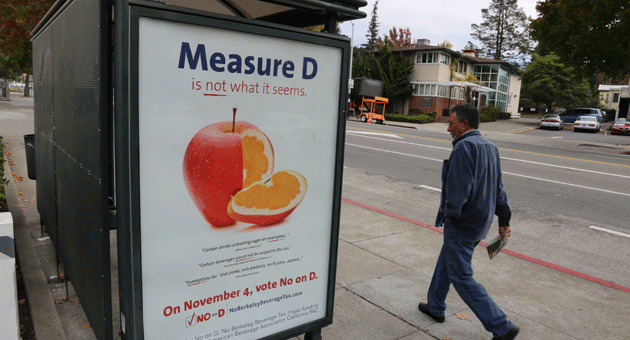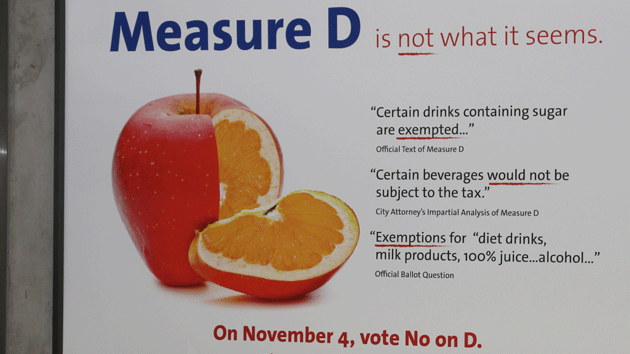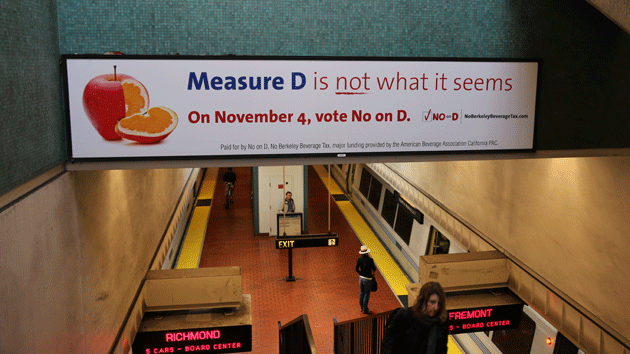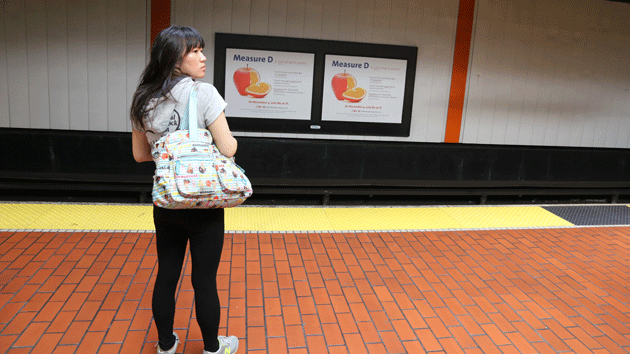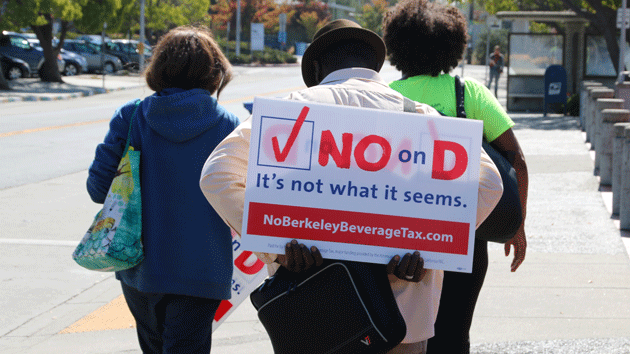
Big Soda Is Totally Freaking out about This Local Ordinance
In a couple of weeks, residents of Berkeley, California, will decide whether or not to place a penny-an-ounce tax on sugary beverages such as sweetened teas and sodas.
October 20, 2014 | Source: Mother Jones | by Josh Harkinson
For related articles and more information, please visit OCA's Health Issues page, Breaking the Chains page and our California News page.
In a couple of weeks, residents of Berkeley, California, will decide whether or not to place a penny-an-ounce tax on sugary beverages such as sweetened teas and sodas. The beverage industry has fought off similar taxes and restrictions in every American city where they've been proposed, but it has never faced a more formidable challenge than it does in this overwhelmingly liberal and well-educated college town.
Early polls show almost two-thirds of Berkeley residents favoring the tax proposal, known as Measure D. If Big Soda can defeat a tax here, the thinking goes, it can defeat one anywhere. Yet if the industry loses, the momentum could swing to the nutritionists and health advocates who've argued for years that sugar-packed foods and sugary drinks are the smoking guns in our diabetes and obesity epidemics-despite decades of campaigning by the sugar industry to make us believe otherwise. (A new study suggests that drinking a 20-ounce soda daily can age your cells as much as smoking does.)
To date, beverage companies have poured an astounding $1.7 million into derailing this small-city measure, more than $21 per registered voter. With No on D ads flooding local TV and radio broadcasts, newspapers, bus stops, light-rail stations, and residential doorknobs-not to mention all the mailers and handouts from paid canvassers, it can feel like the whole city is under invasion by a propaganda machine. The soda fight is, if nothing else, a case study in whether truckloads of cash can sway a politically engaged citizenry.
Rather than defend the merits of sugary beverages or even question the point of taxing them, the ads seem designed to confuse voters and breed cynicism about how the money will be spent. I snapped some photos of the advertising around town and asked the measure's outgunned campaign to respond to some of the claims.
Bus stop, Telegraph and Ashby avenues.
Anti-Measure D ads appear on numerous Berkeley bus shelters. Clear Channel Outdoor, which handles the advertising did not return a call seeking information about their cost and placement.
Detail from a similar ad at the North Berkeley BART station.
According to Sara Soka, the campaign manager for Berkeley vs. Big Soda, as the pro-D campaign is known, milk products and 100% fruit juice were exempted due to their nutritional value. Soda, on the other hand, is just empty calories. "It's not like kids are walking around and drinking milkshakes," Soka says. Liquid sweeteners added to coffee drinks are taxed. Alcohol is exempted because it's already taxed. Diet drinks, while not exactly good for you, also aren't strongly linked to diabetes or obesity.
Two of Berkeley's three BART stations, I discovered, were awash with ads opposing the measure. According to Berkeleyside, a local news site, the No campaign has spent $46,750 on the BART ads alone. Here are more shots at the North Berkeley station.
Outside of the station, I ran into these paid canvassers, who hightailed it once I told them I was a reporter and started snapping some photos. (They said they weren't allowed to talk to the media.)
But before I outed myself as a reporter, I wanted to hear their pitch to voters firsthand. Here's a short clip from my chat with one canvasser. (The background music is coming from his cell phone).
One of the reasons he said I should vote against the measure-I'm actually an Oakland resident, so I can't vote on it either way-is that it would hurt local businesses and the poor. Now it's conceivable that someone going on a big soda run might pop over the border to avoid the tax, but it's hard to imagine that anyone grabbing a drink at the local convenience store would bother.
As for whether the tax would hurt the poor, Soka of Berkeley vs. Big soda argues that the tax was in fact designed to help low-income people by reducing the obesity epidemic that disproportionately affects the poor and people of color. And while some people may not like the nanny-state aspect of that, Measure D has been endorsed by the NAACP and Latinos Unidos. If the measure's opponents "were truly concerned about communities of color or low-income communities," Soka said, "they would stop using them as a target."

